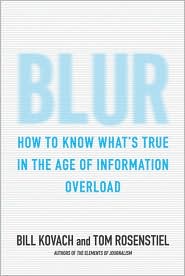
From the PBC Interview:
You have a chapter about information revolutions through history–the printing press, the telegraph and so on–titled “We’ve Been Here Before.†How does that perspective help us think about the shifts we’re going through now?
I think we have the potential for a richer kind of journalism and information flow; the ability for people to create knowledge is much richer than it was ten years ago. But the history would also suggest that there’s a process of dislocation and then recreation, or building. You mention the invention of the printing press. Well, that led to the production of an enormous number of books, and it led to a questioning of Catholic orthodoxy, it led to the Reformation. It also led to the Enlightenment. But in the 150 years following the invention of the printing press, there was also an upsurge in suspicions of witchcraft and belief in alchemy, because those ideas also spread more rapidly. In the long run, they didn’t prevail; but if you were in the middle of that period, it was very disorienting. Suddenly all kinds of books, not just the Bible, were being produced. Each information revolution toppled established authorities and created new ones, so in some ways you could say the information revolution we’re in now, though it hasn’t toppled all authorities, has created new authorities. Forty percent of Americans get news from social network friends or social network sites; well, that’s a new news authority. It’s a richer panoply of sources, but it’s not democracy in the pure sense of the word.





